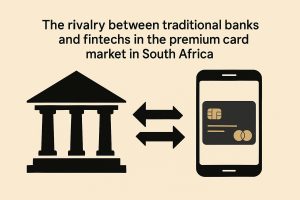For the self-employed and freelancers in South Africa, financial planning is more than just an afterthought—it’s a cornerstone for sustainable success. Without the safety nets of traditional employment, budgeting and financial foresight become critically important.
The key to financial independence lies in effectively managing income, expenses, savings, and taxes. This can often feel like juggling multiple tasks at once, but with the right approach, it’s entirely manageable. By understanding the unique financial landscape you inhabit, you can craft a strategy that supports both your personal and professional aspirations. Let’s dive into how you can navigate this path with confidence.
Understanding the financial landscape

In South Africa, the growing freelance sector offers flexibility but comes with financial challenges, such as fluctuating incomes. Freelancers must understand the local financial landscape, including inflation and economic policies, while adopting a disciplined approach to saving and investing.
Global market trends can also impact earnings, so staying informed and adjusting strategies is crucial. Additionally, freelancers should leverage digital tools like banking solutions, invoicing software, and investment platforms to simplify financial management and improve decision-making. These tools can help achieve both short- and long-term financial goals.
Budgeting for fluctuations
Freelancers often struggle with inconsistent cash flow, making budgeting challenging. To manage this, track your income and expenses closely to anticipate lean months and adjust spending. A well-structured budget provides a financial buffer for unexpected costs.
Prioritize essential expenses like rent and groceries, and save discretionary spending for better months. This ensures financial security during slow periods. Additionally, build an emergency fund covering three to six months of essential expenses to help handle unexpected challenges, keeping you stable both personally and professionally.
Tax obligations and benefits
Freelancers in South Africa have different tax obligations than salaried employees. They must register as provisional taxpayers and make regular payments based on estimated income. Accurate financial records are crucial for compliance, and consulting a tax professional can help optimize tax efficiency.
Understanding deductible expenses—such as home office costs, professional fees, and travel expenses—can lower your taxable income, improving both tax liability and financial planning. Tracking these expenses also aids in better cash flow management.
Tax-deferred savings options, like retirement annuities, offer tax relief and support long-term retirement planning. Incorporating these into your financial strategy ensures both tax compliance and financial security. Effective use of tax benefits is vital for freelancers’ financial success.
Investing in the future
Investing intelligently is key for self-employed professionals aiming to build wealth. While traditional savings accounts offer security, they often yield limited returns. Diversifying your portfolio with stocks, bonds, and real estate can provide higher returns, each with its own risk profile. Understanding your risk tolerance and financial goals will help create a balanced portfolio.
Consider low-cost investment funds like ETFs or mutual funds to gain broad market exposure with professional management. These funds spread risk and reduce personal involvement. For freelancers with fluctuating income, stable assets might complement your strategy well. Consistent, mindful investing leverages time and compound interest, helping build financial security.
Retirement planning is also crucial. Start contributing to a retirement fund early, even with fluctuating income. Flexible retirement savings plans allow adjustments based on earnings, ensuring steady progress toward retirement. Sustainable investing with long-term growth and tax advantages is key for financial security in retirement.
Securing insurance protection
Insurance is often overlooked by freelancers but is crucial in protecting against future uncertainties. Life insurance provides financial support to dependents, while disability insurance covers income loss due to health issues.
For self-employed professionals, having the right coverage keeps personal and business finances stable during challenging times. Understanding the available plans helps in choosing policies that offer comprehensive protection without straining finances.
Health insurance is another vital aspect. Private health cover offers quicker access to medical services, ensuring business operations remain uninterrupted. Evaluating different plans allows you to choose one that fits your budget and healthcare needs, helping you navigate challenges with resilience.
Additionally, consider insuring your business equipment, especially if your work relies on technology or specialized tools. Coverage for repair or replacement helps avoid financial strain from unexpected breakdowns. By integrating insurance into your financial strategy, you ensure peace of mind and maintain a stable professional venture, no matter what life throws your way.
Building financial resilience through education
Continuous learning is key to financial resilience as a self-employed professional. Staying updated on financial management, investment opportunities, and tax regulations allows you to make informed decisions. Consider workshops, online courses, or industry seminars focused on financial literacy for freelancers. These resources provide practical insights that can enhance your financial strategy.
Networking with fellow freelancers is another valuable tool. Sharing experiences and strategies with peers can offer new techniques and foster a sense of community. Engaging with others helps you stay informed about industry trends and best practices, contributing to business growth.
Ultimately, prioritizing financial education equips self-employed individuals to confidently manage their financial futures. By continuously expanding your knowledge, you build a strong foundation for long-term success in the ever-evolving landscape of freelance economics in South Africa.



